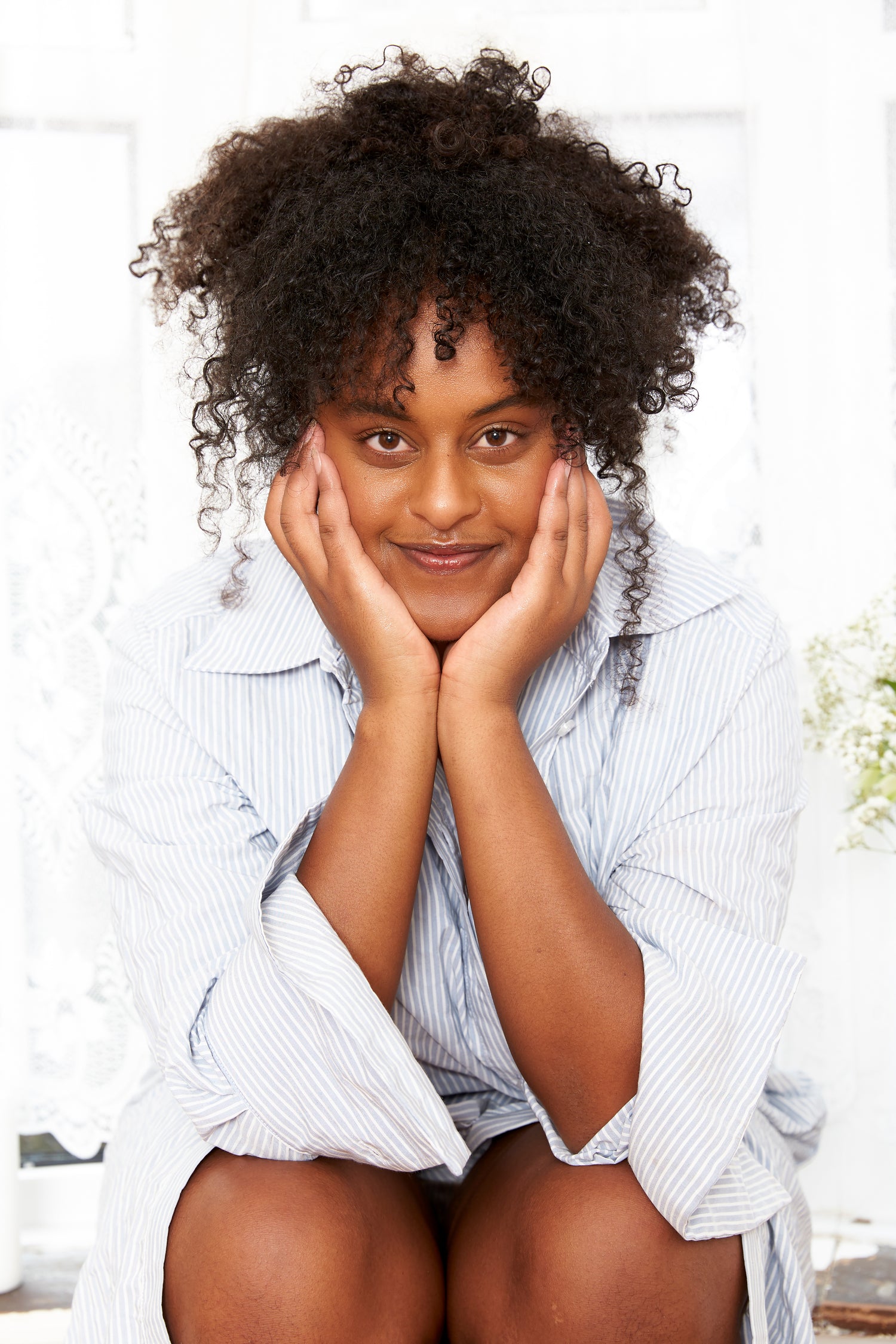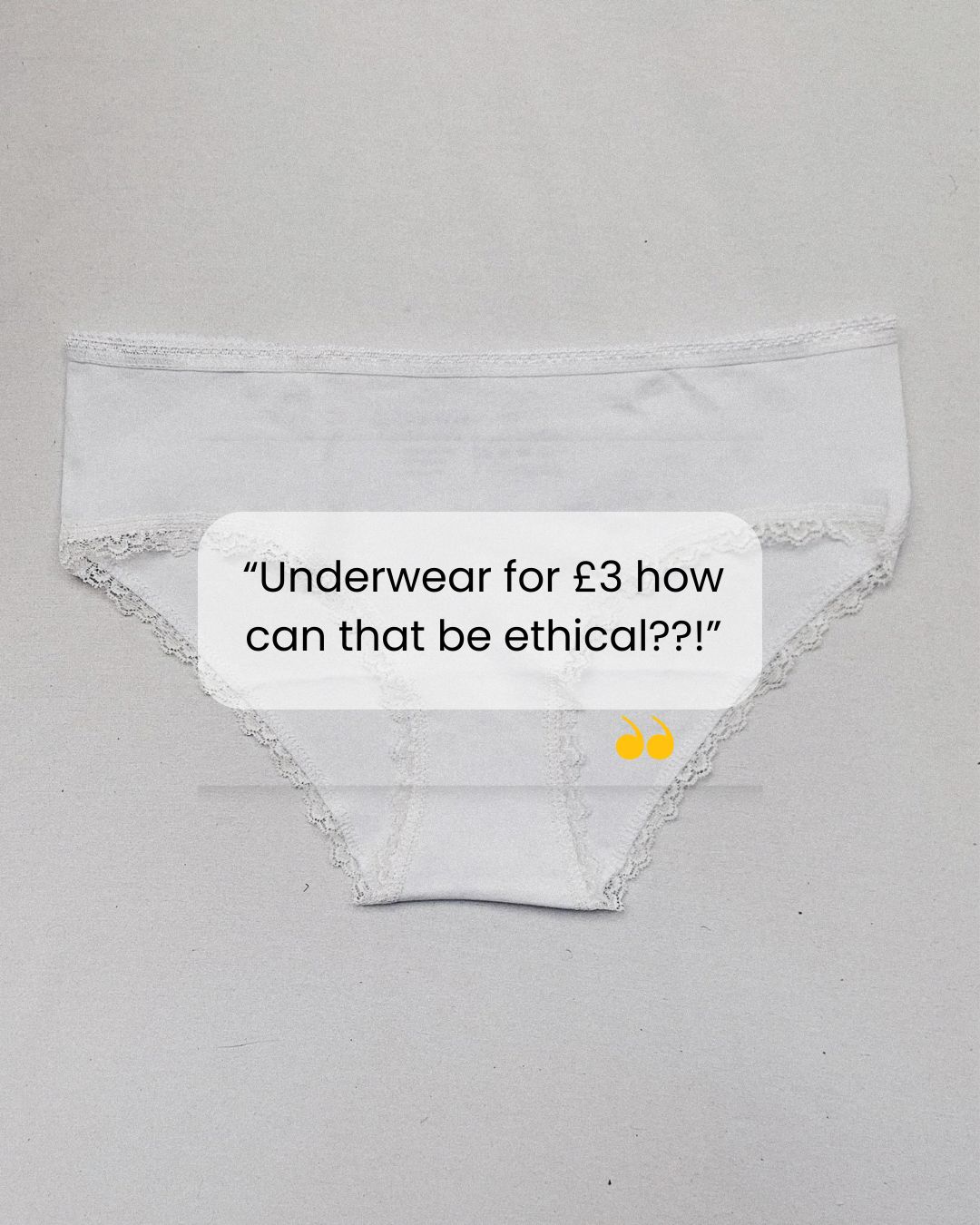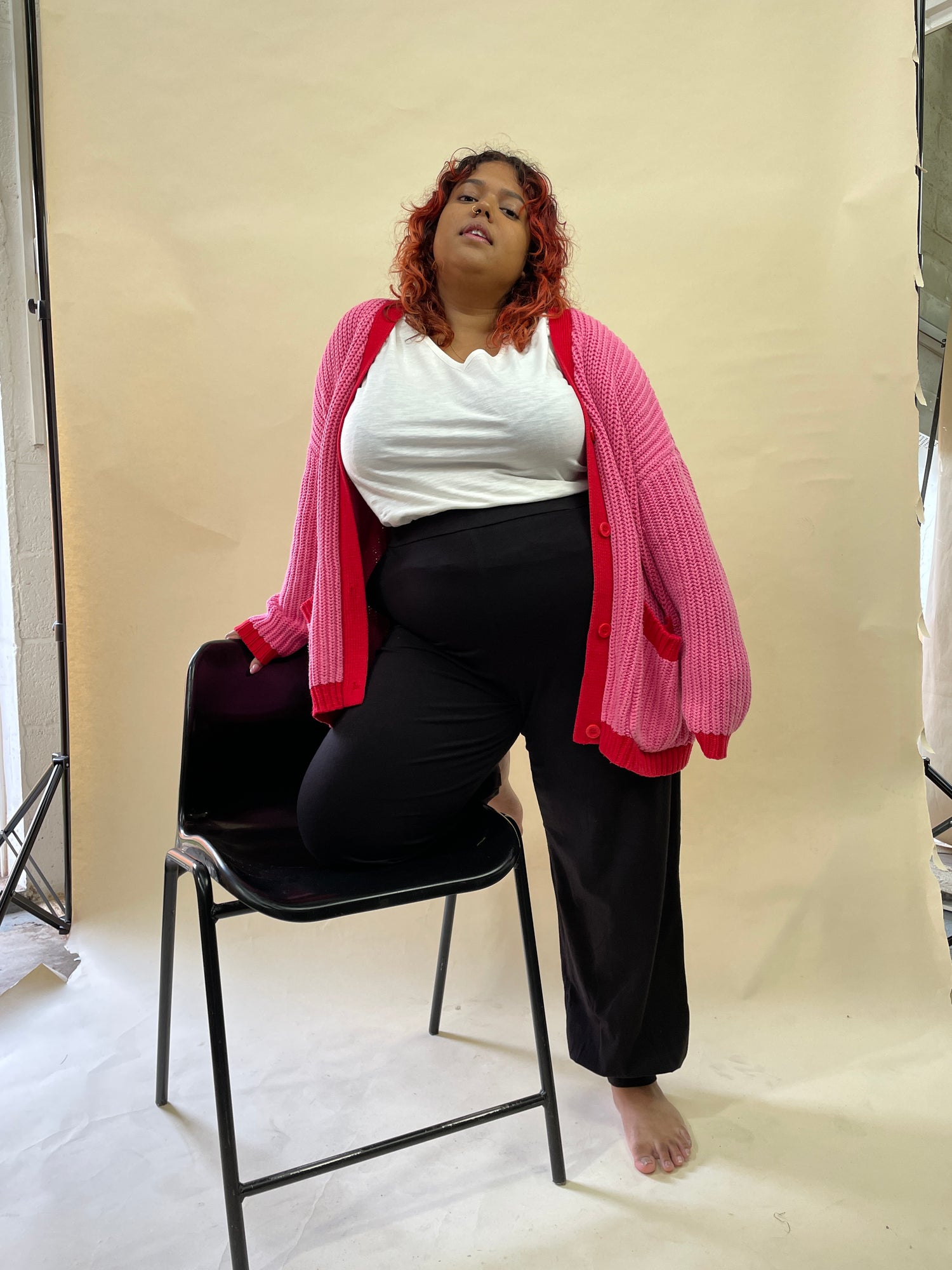Sancho’s is the home of sustainable fashion and ethical lifestyle products. Our Black woman owned business is based in Exeter, UK where we believe in doing better, providing sustainable and affordable clothing options. Through activism and spreading awareness, we are working towards a kinder world. Shop our Transparent Pricing collection here, our Organic Cotton Bestsellers here and read more About Us here.
This Saturday 5th December is ‘Small Business Saturday’, a day to support and appreciate the small businesses in our towns. Small businesses bring life and colour to many of our communities, and this year we have really seen what a high street without small business would look like and it did not look good! Here at Sancho’s we have had a really tough year but we’re so thankful you have supported us and allowed us to make it through! Read my conversation with Kalkidan, the co-founder of Sancho’s here, on why small business is important to our communities.
What made you want to start your small business?
Kalkidan: “I think that we (Vidmantas and I) wanted to just work for ourselves, looking back now, we had just done some not great jobs over the summer, so we wanted to do something more fun and creative. I had spent 6 months working in Ethiopia, the year prior, and that had exposed me to a ton of really cool crafts - beautiful gifts and products – weavers and garment makers – and it made me really excited to show people here [in the Uk].
When you are from a country in the global south, it’s hard because people don’t really know what’s going on there, and they think of it as a tiny place with lots of problems, and you’re trying to figure out how that reflects on you and you start to understand the country in that same way. I think I had a really white-washed view of where I was from, so I went back and lived with my grandma, and I realised it was nothing like what I had thought – there was so much beauty and skill and craft. I was working for an NGO while I was in Ethiopia, and I was 19 at the time. On the weekend I would go to markets and loved finding beautiful gifts and clothing.
I realised that the thriving industry there, was the fashion industry, there was all these traditions for growing cotton, spinning cotton, weaving cotton and design and fashion shows. Everything that was exciting about fashion was there, and they were making good money from it, so fashion became the idea for me. I have always been interested in development, that’s one of my main passions and goals and interests in life, so fashion became a means of facilitating development that was full of neutral partnerships and respect for makers. We started the business because we were excited about fashion, crafts and telling the story of ‘should we be doing aid, or should we be doing trade?’ when talking about development."
Were you always interested in fashion?
Kalkidan: “ absolutely, I used to have red hair and I had rollerblades before they were cool, but I could never roller blade so it never came to much. I like to imagine that if I were 16 now, I would be one of the tik tok girls in my roller blades! It’s always been really creative and fun, but I didn’t know anything about the industry, so I had to learn all of that.
I was just really interested in development, my grandma is a coffee farmer – coffee was sold to lots of people in the developing world as ‘the grain that’s going to lift them out of poverty’ by the worlds bank in the 1970’s – 90’s. So, she [my grandma] was one of those people. Her and her husband got this farm and thought it was going to be their route to development, but so did everyone else. Not just in Ethiopia, but all around the world. So, as a product it’s so homogenous that no one can really own it, so the makers and farmers have to fight for their rights a lot more.
Whereas with fashion, you can create something that is a unique item and charge whatever you like for it, and so it has an ability to take some of that value adding and keep it within the makers hands and that’s what made me interested in fashion. I think it’s such a shame that so many garment workers are still exploited because they do most of the value adding, apart from the designers, they are doing all of the work and it is their labour. They are still on mass exploited, but they don’t need to be – it’s an industry where it doesn’t have to be like that, whereas in a lot of other industries it is much harder to control.”
What are the most difficult hurdles you’ve had to face as a small business?
Kalkidan: “Finance is a huge hurdle, most businesses you take some money and you put it into a machine (which is the business) and it makes more money. That’s how you run a business – most machines have a minimum amount that you need to make them work – shops need rent, rates, heating, staff time & products. We literally started with our student overdrafts facility and nothing else.
However, we had a lot of time, so where we didn’t have money we put in a lot of our own time. Luckily over time it added up for us – but it meant that we worked really hard, like really really hard. I think that is a really big obstacle because it was really tough on us, no one would choose to work 10-12 hours a day consecutively for years, no one would choose that because it’s a lot. But the harder truth is that we were so privileged to be able to do that – we had friends who let us sleep in their living rooms so we had somewhere to live and we had our parents always there as a backup, in the worst case scenario we could go home, and our mums could look after us.
A lot of people aren’t afforded that – we also had no dependents, we didn’t have a lot of debt, whereas that isn’t the same for everyone. It was an obstacle but we managed it, but I think it’s a really serious problem when we talk about anyone who doesn’t have resources and how they can do anything, let alone running a shop, doing anything that is value adding is impossible without capital.”
What are you favourite small businesses?
Kalkidan: “Wild hive designs with Bee Watson – I’ve seen her put herself into her business in such a beautiful way. Because it’s an arts business there is so much love and creation that goes into what she does, and I think it’s so beautiful and I’m so proud of her, 100% one of my favourite businesses. I love Yala jewellery, because the quality of the product and the packaging is so beautiful, and she has done so well at creating this beautiful small business. On Fore street – I love The Flat run by Chloe, who has been so generous with us. Throughout the first lockdown, me and Vidmantas would be working late here and she would just bring us snacks throughout the day – she is so generous and kind, they’re wonderful! Outside of Exeter – Our lovely goods are really cool, People Tree is still one of my favourites, I’m so in awe of them as a company, I love Hara and Girlfriend for their inclusivity.”
Why should we support small business?
Kalkidan: “It’s all about value in society for me – so you come into work and you work really hard and you add value and you get your wage for that – that wage is a mark of your time and your efforts – so then where does that money go? Do you go to another small business in the same town where the owners live nearby and they are paying rent or mortgage in your town and paying council tax in your town, and supporting the local community by living there and adding value – or do you go and give your money to a company that is so centralised in their management that for every pound you spent in that company, very little is going to come back to you in any value adding way. That’s why people should shop more in small businesses because the more of our efforts, our money, our time and our value that goes into large companies, the more of it is centralised and allocated to very small pots. There’s a lot of consequences that come from this, from a lack of investment to unethical practices, the climate crisis where large companies have more power than states, so that’s why people should shop small if they can, it’s the best way for them to retain the value that they create – when they do need to shop.”
What happens when you shop at Sancho’s rather than at a large corporation?
Kalkidan: “from a climate change perspective, over half the carbon produced comes from less than 100 businesses, so how did they get so powerful? Most companies have share structures, big companies are more likely to have shareholders that don’t come from the pool of stake holders in the business. They’re less likely to say ‘our work force is underpaid, that’s going to have negative consequences, let’s change it’ because they’re not entangled in the work force, or ‘this city has extreme pollution and the local residents are suffering from that, let’s address our pollution’. Whereas with small businesses they are more likely to have an overlap between the stake holders and the shareholders, so small businesses pay better on average, they employ more people on average, and they pay higher taxes on average, and it’s decentralised power. So small businesses are really powerful.”
What are the benefits for shoppers when shopping at small businesses?
Kalkidan: “You get lots of choice compared to the main high street which can be clones of one another, and there is more room for creativity and ideas. This is definitely a benefit of the shopper because then they get to choose from what’s available. If you think of it in terms of size inclusivity – high street shops have the budget to be size inclusive but they’re not spending it that way because they make more money if they’re not inclusive. Whereas small businesses such as The Emperors Old Clothes or Birdsong or Girlfriend or Hara – they are trying to provide space for more people. Another reason is small companies create a lot of new things, more innovation – I think sustainable fashion has been spear-headed by small business. A lot of change has come about by small pockets of change and pockets of innovation and development that have built traction over time, as opposed to large fashion companies saying, ‘okay now let’s make a few things in organic cotton’. Because their shareholders aren’t the same as their stake holders. So, they don’t choose to do the thing that will cost them money.
However, not everyone is in the same position, and small businesses tend to be more expensive so not everyone can afford to support them, or they don’t have ones near to them that they like. But it would be better to shop like your shopping small but at a big business – like building relationships with the company, not buying as much in general and asking them to be participants in your local community. I think asking them to behave like stake holders if they’re not is one of the best things to do if you can’t shop small.”
So, why should we support small this weekend?
Kalkidan: “In general the more small businesses there are, the healthier your community will be, your society will be and the economy will be. Companies can be any size – but smaller businesses are more likely to behave better for their community. You don’t have to be small to be great, but it helps. We want businesses to behave like stake holders, that’s what people see in Sancho’s and that’s how companies are trying to behave now, they’re trying to behave more like stake holders and less like third parties that are just there to sell you something. You want businesses to be invested in what happens to your town, what happens to your city, what happens to the manufacturers, what happens to the recycling centre, do the local school children get apprenticeship opportunities? We want businesses to think in terms of social mobility, and we [Sancho’s] have done that to an extent, just through having the freedom to do it and it has felt right. Now we are starting to see bigger businesses behave like that, you don’t have to be small to behave like that, but it helps.”
Thank you for reading my conversation with Kalkidan on why to support small businesses like Sancho’s, you can shop our new in range of products here, sign up to our newsletter hereand shop our best-selling ethical Christmas gifts here. This week only, buy 2 pairs of slippers and get 15% off, the perfect ethical Christmas present for all the family!
Written by Olivia Riley



